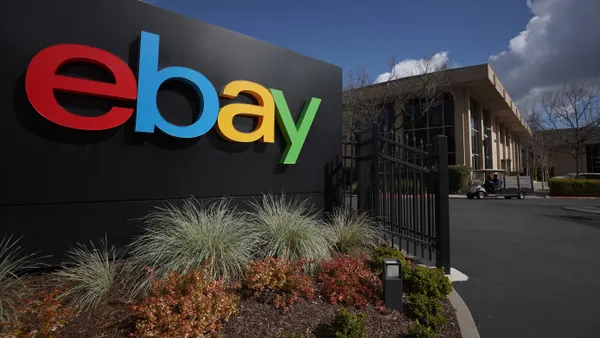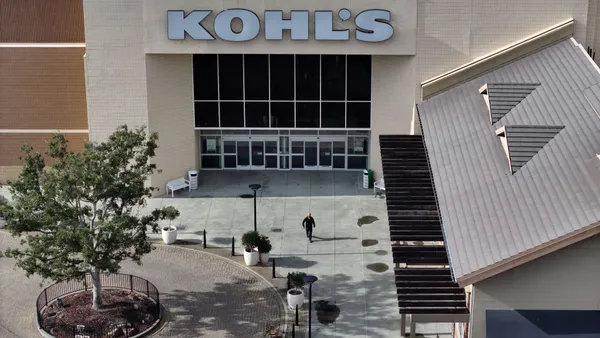Dive Brief:
-
Alibaba Group recently announced a planned investment of more than 100 billion yuan (over $15 billion U.S. dollars) to create a smart logistics network using drone and robotic technology to enable product deliveries within 24 hours across China and within 72 hours to many other countries, according to a report from The Economic Times of India.
-
The news comes as Alibaba's own Ele.me recently started using drones for food deliveries in China. Alibaba Executive Chairman Jack Ma discussed his company's investment and logistics plans during the recent 2018 Global Smart Logistics Summit in Hangzhou, China.
-
Alibaba rival JD.com has also been busy building out its own logistics network, following a model similar to that used by Amazon, according to a Next Big Future report, by creating a network of hundreds of warehouses and thousands of local delivery and pick-up locations.
Dive Insight:
Alibaba holds a controlling stake in smart logistics company Cainiao, a relationship that has drawn much scrutiny from the SEC, so it has been moving toward this concept of a vast smart logistics network for a while now. Its efforts to ramp up faster delivery are not only about making that happen throughout China, but internationally as well.
Alibaba has also been facing growing competition from JD.com, its biggest e-commerce rival in China, and in recent years the companies seem to have been pursuing similar growth strategies, with frequent investments in brick-and-mortar retail. Alibaba, for its part, invested more than $1 billion in two different firms to feed it brick-and-mortar expansion, while JD.com has deepened a partnership with Walmart, and committed to building hundreds of unmanned convenience stores.
Now, the rivals are shifting their attention to logistics, perhaps taking a page from Amazon's book of how to expand retail dominance by building a network capable of reliable express delivery. That being said, Alibaba and JD.com have much more vast canvases to work with, though they could face similar regulatory scrutiny being placed on technologies like drone delivery in the U.S.
The big question is just how far both Chinese companies will look to extend their logistics reach. JD.com has already reportedly been considering a fulfillment center in Los Angeles as an outpost for a U.S. logistics expansion. Meanwhile, Alibaba has dabbled in the U.S. market, mostly focusing on Chinese tourists and immigrants through Alipay, although at one point it was rumored to be in talks with Kroger about a partnership.












